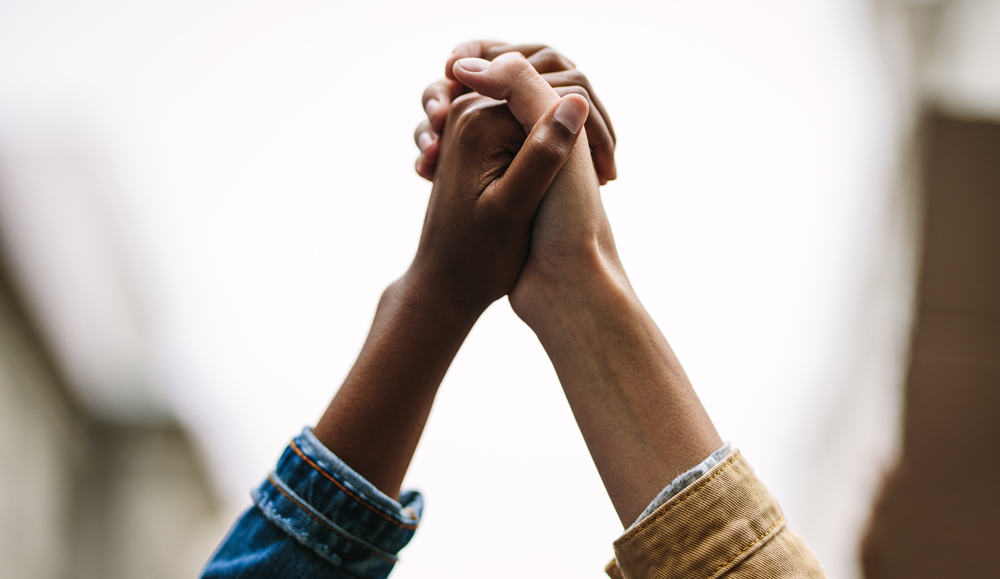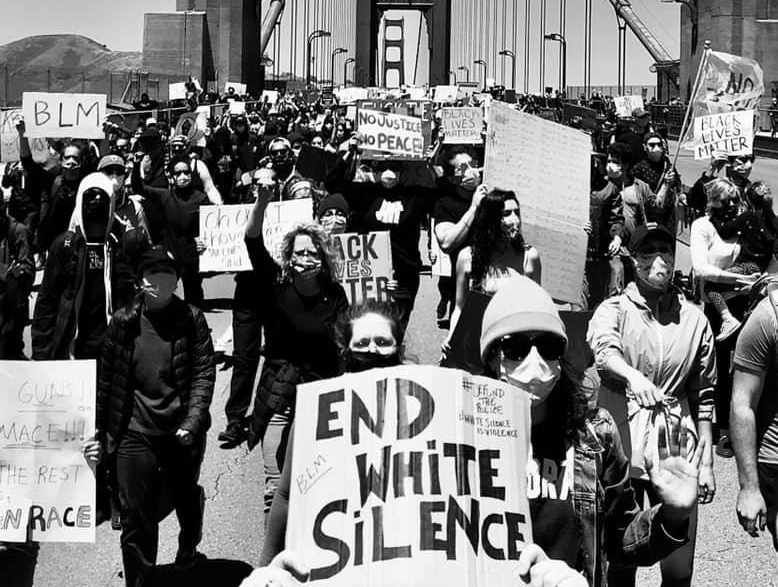Resources to Help Us Join Together for Equality. →Please Share.

Let’s together create a new way to lead in this new path to a new world…
…a world with true soul connections with every soul, in full equality. Where everyone feels like they are LOVED and they MATTER.
> To read our full blog piece on this topic, including the resources below, Click Here.
OneMama’s Voice:
“We are all OneMama Living on this One Mother Earth!…”
“We all want to feel like we are loved and we matter in this world”
How to Be an Ally
It’s important to understand what it means to by an ally. An ally is a person who is not a member of a particular marginalized group but seeks to help end the oppression of those in the marginalized group. Being an ally is a life long constant process.
Ally-ship can mean different things to different people, and it can be tough to know where to start.*
Commit to becoming an ally
THERE ARE MANY WAYS TO BEGIN RIGHT NOW!
for racial equality.

*Here are things you can do right now to become a better Ally:
Taken from the article A Guide to How You Can Support Marginalized Communities.
1. Do your research. Do what you can to educate yourself before you ask others to explain things to you.
2. Brush up on history. Asking “How could something like this happen?” when another police encounter turns deadly can come across as tone-deaf to communities.
3. Influence people in your own group. Talk to the people in your own life, particularly those that share the same identity as you. Share your learnings from your research.
4. Teach your children. It’s never too early. Talk to your kids explicitly about racism and other forms of discrimination. Don’t teach them to be “colorblind.”
5. Own up to your mistakes. Allyship is a process. Along the way, you’re sure to do or say the wrong thing now and then. Don’t get defensive. Take responsibility for slip-ups and do better moving forward.
6. Acknowledge and use your privilege. A critical part of being an ally is recognizing the benefits and power you have in society because of the identity you were born with.
7. Understand others’ experiences. Instead of offering up your own thoughts, listen to people who are marginalized when they tell you about their experiences, frustrations and emotions. Sit with that for a while.

VALUABLE RESOURCE LINKS
Websites
- The Smithsonian National Museum of African American History and Culture (NMAAHC) released a new web portal “Talking About Race”. Talking About Race provides digital tools, online exercises, video instructions, scholarly articles, and more than 100 multimedia resources tailored for educators, parents, and caregivers, as well as individuals committed to racial equality.
- Guide to Allyship – An open source starter guide to help you become a more thoughtful and effective ally.
Videos / Audios
- Listen to the stories of former slaves via The Library of Congress’s Voices Remembering Slavery: Freed People Tell Their Stories.
- Deconstructing White Privilege with Dr. Robin Di Angelo.
- Watch Oprah’s Two-Part Town Hall Addressing Race in the U.S. “Where Do We Go From Here?” features Ava DuVernay, Stacey Abrams, and more.
- Listen to ‘1619,’ a Podcast From The New York Times – An audio series on how slavery has transformed America, connecting past and present through the oldest form of storytelling.
- Brave vs. Color Blind – Ted Talk by Mellody Hobson
- We need to talk about an injustice – Ted Talk by Bryan Stevensen
- The difference between being “not racist” and antiracist – Ted Talk by Ibram X. Kendi.
- How childhood trauma affects health across a lifetime – Ted Talk by Nadine Burke Harris.
- Take a Walk in My Shoes – Jane Elliott
- Jim Crow and America’s Racism Explained
- Systemic Racism Explained – Animation giving a closer look at what systemic racism is, and how we can solve it.
Articles
- The National Museum of African American History and Culture piece on understanding Whiteness. *In all of my years in DEI, this is probably one of the most comprehensive resources I’ve found.
- Michelle Obama’s Statement about George Floyd’s death.
- Resources to understand the long history of injustice and inequality by Washington Post Staff
- Juneteenth: Our Other Independence Day – by Kenneth C. Davis published in the Smithsonian Magazine.
- How to talk about politics at work by Michelle Kim, CEO of Awaken. While this was written to address political events, her advice is useful for discussing racist incidents. Also by Michelle Kim, How to Manage Your Team in Times of Political Trauma.
- My Open Letter to White Corporate America by Omar Johnson.
- It Shouldn’t Be My Job to Tell Managers to Talk about George Floyd by Diversity and inclusion professional Natalia Eileen Villarmán.
- To make space and discuss racism, be sure to check out How to talk about politics at work by Michelle Kim, CEO of Awaken. While she wrote it to help leaders address political events, her advice is spot on for discussing racist incidents.
- Dear Companies: Your BLM Posts Are Cute But We Want To See Policy Change by Janice Gassam, helping create strategies for more diversity, equity, and inclusion.
- Brené Brown, personal growth, and working on structural racism by Liz Moore, Peace and Action Justice League of Spokane (PJALS) Director.
- 44 Mental Health Resources for Black People Trying to Survive in This Country by Zahra Barnes.
Books / Podcasts
- Brené with Ibram X. Kendi on How to Be an Antiracist.
- “So you want to talk about race” by Ijeoma Oluo. She’s from Seattle and also a speaker at CORE in 2018.
- “How to Be an Antiracist” by Ibram X Kendi.
- “How you can be an ally in the fight for racial justice” by Activist DeRay Mckesson.
- “White Fragility: Why It’s So Hard for White People to Talk About Racism” by Robin DiAngelo.

[…] > To share just the list of resources, Click Here. […]